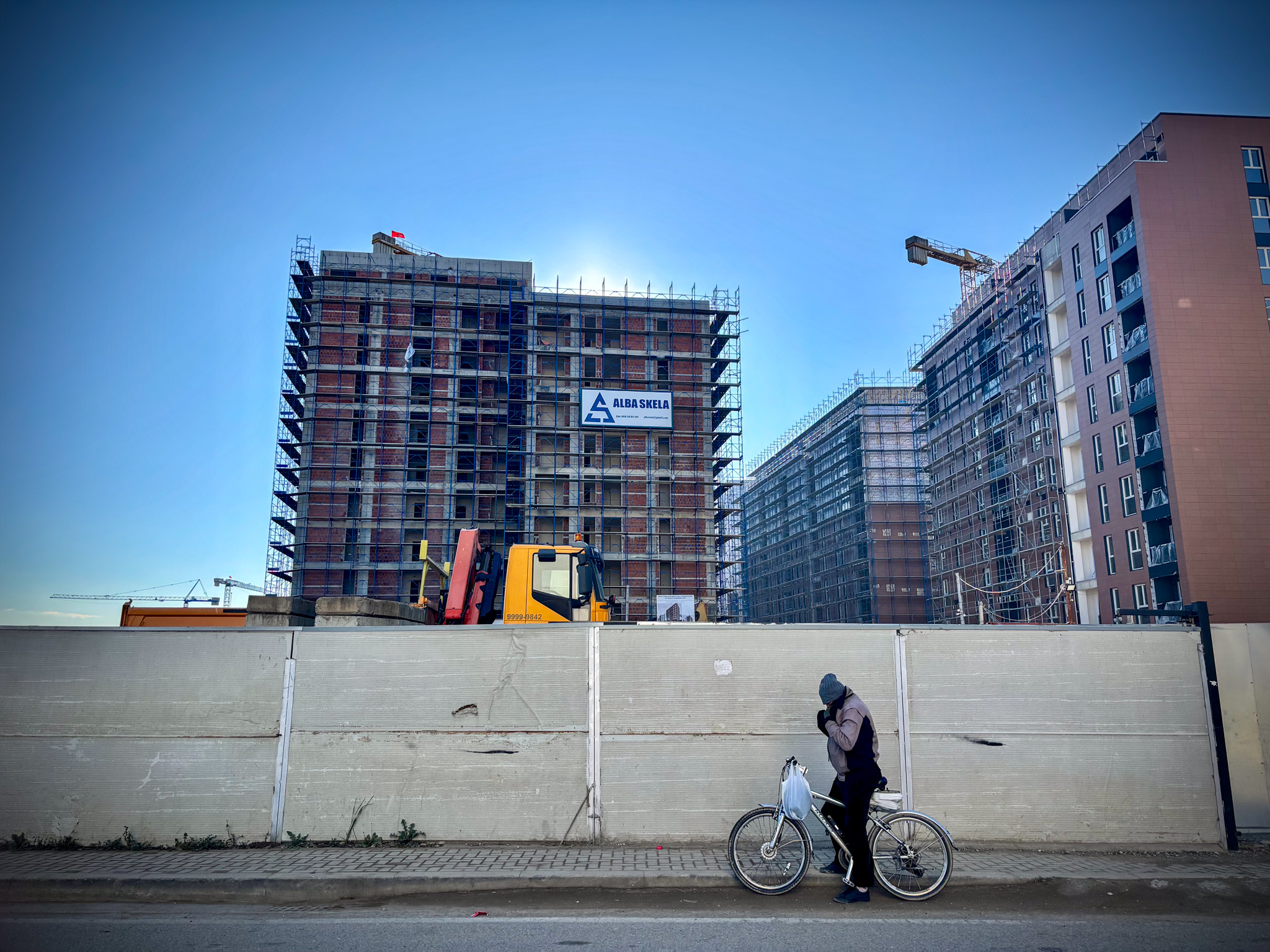Brussels Armenia-Azerbaijan Talks Canceled As Regional Meetings Kick Off
After the meeting between the two Caucasian leaders at the Granada summit on 5 October fell through, there has been no other EU-facilitated meeting. To the surprise of many, however, regional talks began in Georgia and Iran. Brussels does not give up and pushes for a meeting between Aliyev, Pashinyan and Michel

Brussels-Armenia-Azerbaijan-Talks-Canceled-As-Regional-Meetings-Kick-Off
© Login/Shutterstock
Following the cancellation of a meeting between the Armenian and Azerbaijani leaders on the sidelines of the European Political Community (EPC) summit in Granada on 5 October, yet another European Union-facilitated meeting has failed to materialise. The trilateral meeting in question, involving Prime Minister Nikol Pashinyan, President Ilham Aliyev, and European Council President Charles Michel, had been announced at the EPC and was supposed to happen by the end of the month.
Ever since, however, it was unclear whether it would go ahead given Baku’s concerns about a statement signed in Granada by Pashinyan, Michel, French President Emmanuel Macron, and German Chancellor Olaf Scholz.
News about Brussels emerged on 26 October as EU Special Representative for the South Caucasus Toivo Klaar participated remotely in a conference held in Yerevan. The meeting would not take place because of “time constraints”, he said. Remarking on this news at a press conference with his Canadian counterpart, Mélanie Joly, Armenian Foreign Minister Ararat Mirzoyan said that it was again Aliyev who could not attend.
“I hope that the problem really is the specific dates and in the near future it will be possible to agree on new dates”, Mirzoyan said, while later the same day Pashinyan announced that he would seek clarification from the European Union, apparently also caught unaware.
Speaking to the BBC’s Azerbaijan Service, Farhad Mammadov, Director of the Baku-based South Caucasus Research Centre, said that the statement signed in Spain might well be the reason for the cancellation. “The document accepted in Granada is one-sided”, he was quoted as saying. “If the approach of the European Union will be within the framework of the Granada document, I do not think that Azerbaijan will go to […] Brussels […] in the future”.
Indeed, in the days following the EPC summit, the rhetoric from Baku became increasingly critical of Granada meeting. “Baku does not see the need to discuss the problems of the region with countries far from the region”, an official source told Azerbaijani media at the time. “Baku believes that these issues can be discussed and resolved in a regional framework”.
On 8 October, Aliyev made an unexpected visit to meet Georgian Prime Minister Irakli Garibashvili in Tbilisi. During a joint press conference, both noted that Georgia could also host bilateral and trilateral meetings in what some allege was an attempt to shift talks to a platform other than Brussels. “The most correct choice, taking into account both the historical relations and the geographical factor, could certainly be Georgia”, Aliyev said.
Two days later, during a televised interview, Pashinyan responded to Aliyev’s offer to meet in Tbilisi. “When Azerbaijan now offers another platform, we must understand that we are not against other dialogues, but we are against the revisionism of principles already adopted at other meetings”, he said.
Even so, Pashinyan also said that a second meeting of the 3+3 platform would take place in Iran, surprising many given that the first was held in Moscow in December 2021 and frequent announcements about Tehran had been made before. Moreover, Tbilisi continues to refuse to participate in a platform that should include Armenia, Azerbaijan, Georgia, Iran, Russia, and Turkey because of the presence of Moscow.
But the 3+3 meeting did take place on 23 October in Tehran and at the level of the Foreign Ministers rather than their deputies, which was the format for Moscow. The Armenian and Azerbaijani Foreign Ministers also met on the sidelines for talks of “an informal nature”. In a jab likely aimed at the EU and United States, Iran announced that the meeting was to discuss “peace, security, and stability” in the region “without foreign interference”.
Meanwhile, in another development, it was announced the same day that Pashinyan would address the Tbilisi Silk Road Forum on 26 October alongside not only Garibashvili but also Azerbaijani Prime Minister Ali Asadov. “Tbilisi is a neutral, impartial platform, a place where countries can meet and speak about peace, cooperation and development”, remarked Georgian Minister of Economy Levan Davitashvili about the presence of Asadov and Pashinyan.
Garibashvili also used the event to highlight his government’s suggestion of establishing a peaceful neighbourhood initiative. “We are ready to cooperate with […] Azerbaijan and Armenia […] to establish stable peace in the South Caucasus”, he told attendees. For now, however, Yerevan seems reluctant to risk any progress made through the EU process, but with Brussels looking increasingly uncertain, others believe that such a development could at least be complementary .
Meanwhile, Klaar says that consultations to arrange a meeting between Aliyev, Pashinyan, and Michel in Brussels continue, though no date or even time frame has been announced. “It is our expectation that the leaders will meet in Brussels as agreed at the earliest possible opportunity”, his office simply said.
Brussels Armenia-Azerbaijan Talks Canceled As Regional Meetings Kick Off
After the meeting between the two Caucasian leaders at the Granada summit on 5 October fell through, there has been no other EU-facilitated meeting. To the surprise of many, however, regional talks began in Georgia and Iran. Brussels does not give up and pushes for a meeting between Aliyev, Pashinyan and Michel

Brussels-Armenia-Azerbaijan-Talks-Canceled-As-Regional-Meetings-Kick-Off
© Login/Shutterstock
Following the cancellation of a meeting between the Armenian and Azerbaijani leaders on the sidelines of the European Political Community (EPC) summit in Granada on 5 October, yet another European Union-facilitated meeting has failed to materialise. The trilateral meeting in question, involving Prime Minister Nikol Pashinyan, President Ilham Aliyev, and European Council President Charles Michel, had been announced at the EPC and was supposed to happen by the end of the month.
Ever since, however, it was unclear whether it would go ahead given Baku’s concerns about a statement signed in Granada by Pashinyan, Michel, French President Emmanuel Macron, and German Chancellor Olaf Scholz.
News about Brussels emerged on 26 October as EU Special Representative for the South Caucasus Toivo Klaar participated remotely in a conference held in Yerevan. The meeting would not take place because of “time constraints”, he said. Remarking on this news at a press conference with his Canadian counterpart, Mélanie Joly, Armenian Foreign Minister Ararat Mirzoyan said that it was again Aliyev who could not attend.
“I hope that the problem really is the specific dates and in the near future it will be possible to agree on new dates”, Mirzoyan said, while later the same day Pashinyan announced that he would seek clarification from the European Union, apparently also caught unaware.
Speaking to the BBC’s Azerbaijan Service, Farhad Mammadov, Director of the Baku-based South Caucasus Research Centre, said that the statement signed in Spain might well be the reason for the cancellation. “The document accepted in Granada is one-sided”, he was quoted as saying. “If the approach of the European Union will be within the framework of the Granada document, I do not think that Azerbaijan will go to […] Brussels […] in the future”.
Indeed, in the days following the EPC summit, the rhetoric from Baku became increasingly critical of Granada meeting. “Baku does not see the need to discuss the problems of the region with countries far from the region”, an official source told Azerbaijani media at the time. “Baku believes that these issues can be discussed and resolved in a regional framework”.
On 8 October, Aliyev made an unexpected visit to meet Georgian Prime Minister Irakli Garibashvili in Tbilisi. During a joint press conference, both noted that Georgia could also host bilateral and trilateral meetings in what some allege was an attempt to shift talks to a platform other than Brussels. “The most correct choice, taking into account both the historical relations and the geographical factor, could certainly be Georgia”, Aliyev said.
Two days later, during a televised interview, Pashinyan responded to Aliyev’s offer to meet in Tbilisi. “When Azerbaijan now offers another platform, we must understand that we are not against other dialogues, but we are against the revisionism of principles already adopted at other meetings”, he said.
Even so, Pashinyan also said that a second meeting of the 3+3 platform would take place in Iran, surprising many given that the first was held in Moscow in December 2021 and frequent announcements about Tehran had been made before. Moreover, Tbilisi continues to refuse to participate in a platform that should include Armenia, Azerbaijan, Georgia, Iran, Russia, and Turkey because of the presence of Moscow.
But the 3+3 meeting did take place on 23 October in Tehran and at the level of the Foreign Ministers rather than their deputies, which was the format for Moscow. The Armenian and Azerbaijani Foreign Ministers also met on the sidelines for talks of “an informal nature”. In a jab likely aimed at the EU and United States, Iran announced that the meeting was to discuss “peace, security, and stability” in the region “without foreign interference”.
Meanwhile, in another development, it was announced the same day that Pashinyan would address the Tbilisi Silk Road Forum on 26 October alongside not only Garibashvili but also Azerbaijani Prime Minister Ali Asadov. “Tbilisi is a neutral, impartial platform, a place where countries can meet and speak about peace, cooperation and development”, remarked Georgian Minister of Economy Levan Davitashvili about the presence of Asadov and Pashinyan.
Garibashvili also used the event to highlight his government’s suggestion of establishing a peaceful neighbourhood initiative. “We are ready to cooperate with […] Azerbaijan and Armenia […] to establish stable peace in the South Caucasus”, he told attendees. For now, however, Yerevan seems reluctant to risk any progress made through the EU process, but with Brussels looking increasingly uncertain, others believe that such a development could at least be complementary .
Meanwhile, Klaar says that consultations to arrange a meeting between Aliyev, Pashinyan, and Michel in Brussels continue, though no date or even time frame has been announced. “It is our expectation that the leaders will meet in Brussels as agreed at the earliest possible opportunity”, his office simply said.









